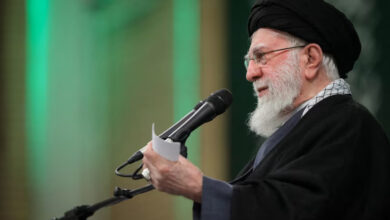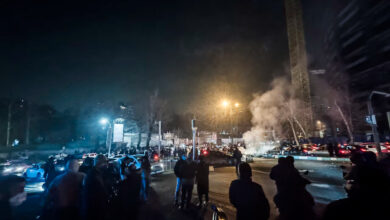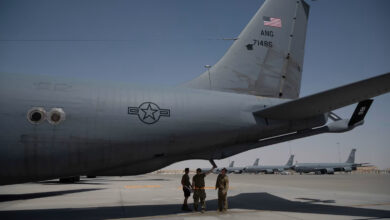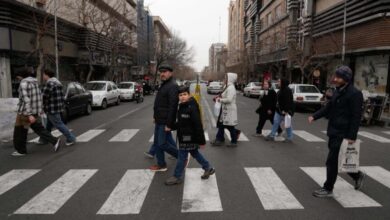Two suicide bombers blew themselves up near a mosque in southeastern Iran on Wednesday, killing at least 38 people at a Shiite mourning ceremony, state media reported.
The IRNA news agency quoted forensic official Fariborz Ayati as saying the dead included women and children.
IRNA said the attackers struck outside Imam Hussein Mosque in the city of Chahbahar near the border with Pakistan on Wednesday. Dozens were also injured.
The bombing appeared to target a group mourning Ashoura, which marks the 7th century death of the grandson of Islam's Prophet Muhammad.
"The blast happened in front of a mosque in the city of Chabahr killing dozens and wounding many of those praying on the holy Shiite day of Ashur," IRNA quoted Mohammad Yaqub Jadgal, a lawmaker, as saying.
IRNA added, "A local official confirmed the explosion in Chabahr on Wednesday. Some reports suggested that the blast was the result of a suicide bomb attack."
One of the attackers detonated a bomb outside the mosque and the other struck from inside a crowd of worshippers, state TV reported.
Mahmoud Mozaffar, a senior Iranian Red Crescent Society official, said more than 50 people were injured, the semi-official ISNA news agency reported.
Mozaffar was also quoted as saying that the Red Crescent had been put on alert over the past few days because of anonymous threats.
Deputy Interior Minister Ali Abdollahi confirmed the attack but said details will be released later Wednesday.
The area of Iran is home to an armed Sunni militant group, Jundallah, or Soldiers of God, which has waged sporadic attacks to fight alleged discrimination against the area's Sunni minority in overwhelmingly Shiite Iran.
Iran has seen a string of explosions in past months, including a blast at a military training base in October that killed and wounded several servicemen.
Several armed groups hostile to President Mahmoud Ahmadinejad's rule are active in Iran, including Kurdish separatists in the northwest, Baluch militants in the southeast and some Arabs in the southwest.
In July, twin blasts in the same province, Sistan-Baluchestan, killed at least 27 people. Jundallah said that attack was revenge for the execution of its leader, Abdulmalik Rigi, in June.




